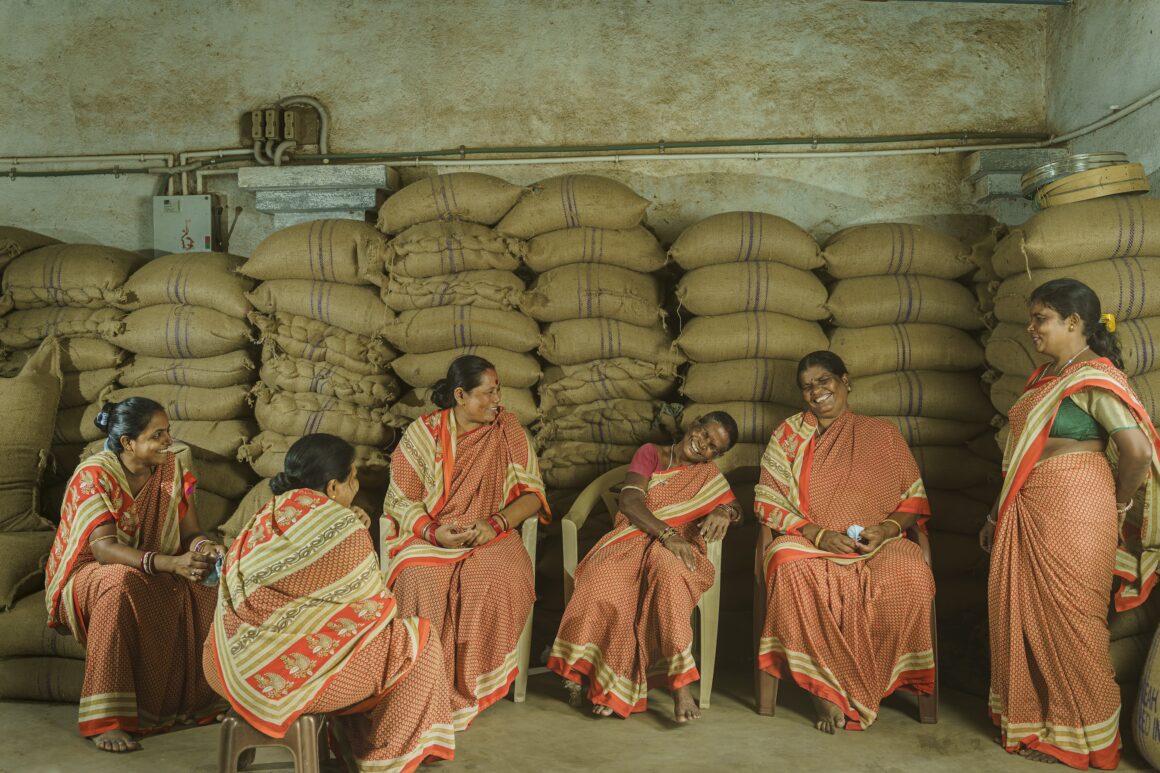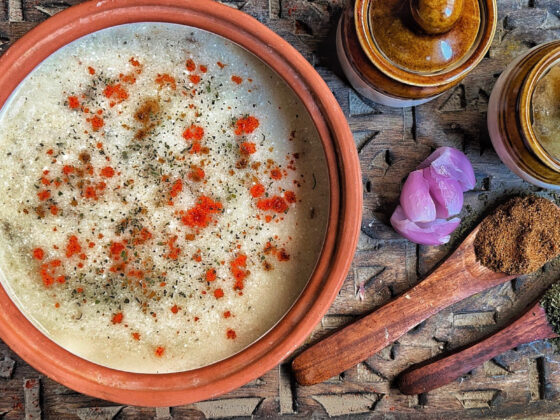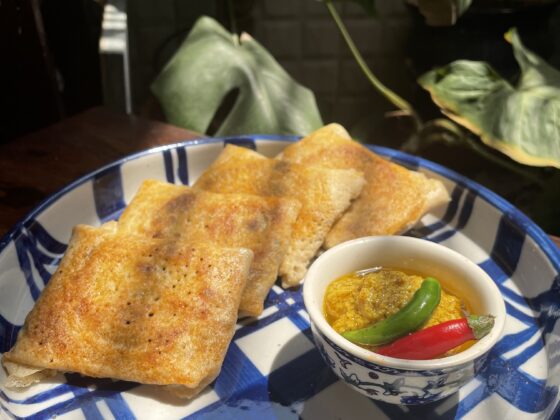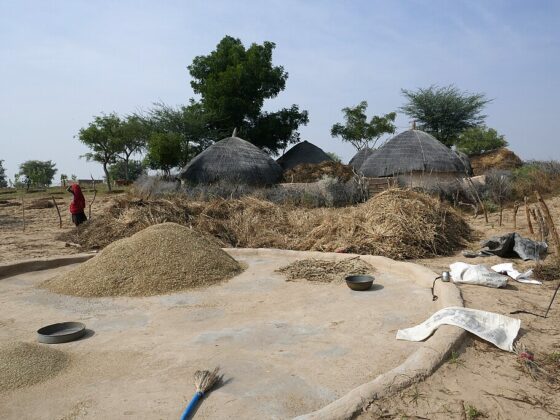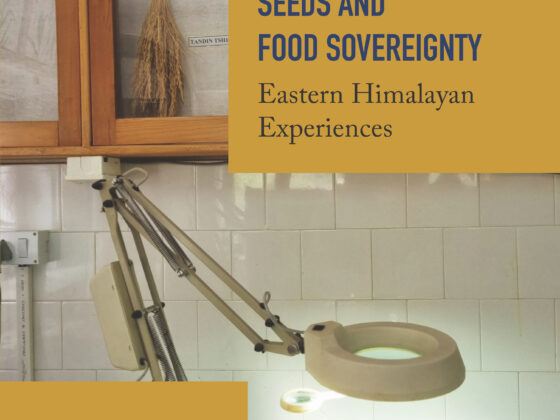Flour Power, an excerpt from ‘Millet Mantra’, narrates the story of tenacious women entrepreneurs and collectives, and how processing ragi into flour paved the way for their independence, and that of the district’s to better nutrition.
In the preface to Millet Mantra, the authors write that the inspiration for the book came to them when they saw the array of traditional and modern millet dishes being served to delegates during the Indian G20 presidency, which coincided with the International Year of Millets. The G20 is a forum of 20 nations that work towards international economic cooperation. At this intersection of food and growth they found themselves asking, “What makes our food system sustainable?”
They found the answer in stories both local and global—from the villages of Odisha in eastern India to an international manifesto rallying chefs around the world to bring sustainability into their culinary practice.
Peppered with delicious recipes that speak to the grain’s versatility, from sorghum soup to kodo millet uttapams and Portuguese cakes with proso and pearl millet, it travels from farm to fork (to beer mug), and showcases the many lives and livelihoods across the millet value chain—where seeds are resilient, women financially independent, and a people, healthy.
In one of the stories, we meet the women entrepreneurs of Keonhjhar, Odisha, and find out how the tenacious women created a bustling enterprise through the climate resilient grain:
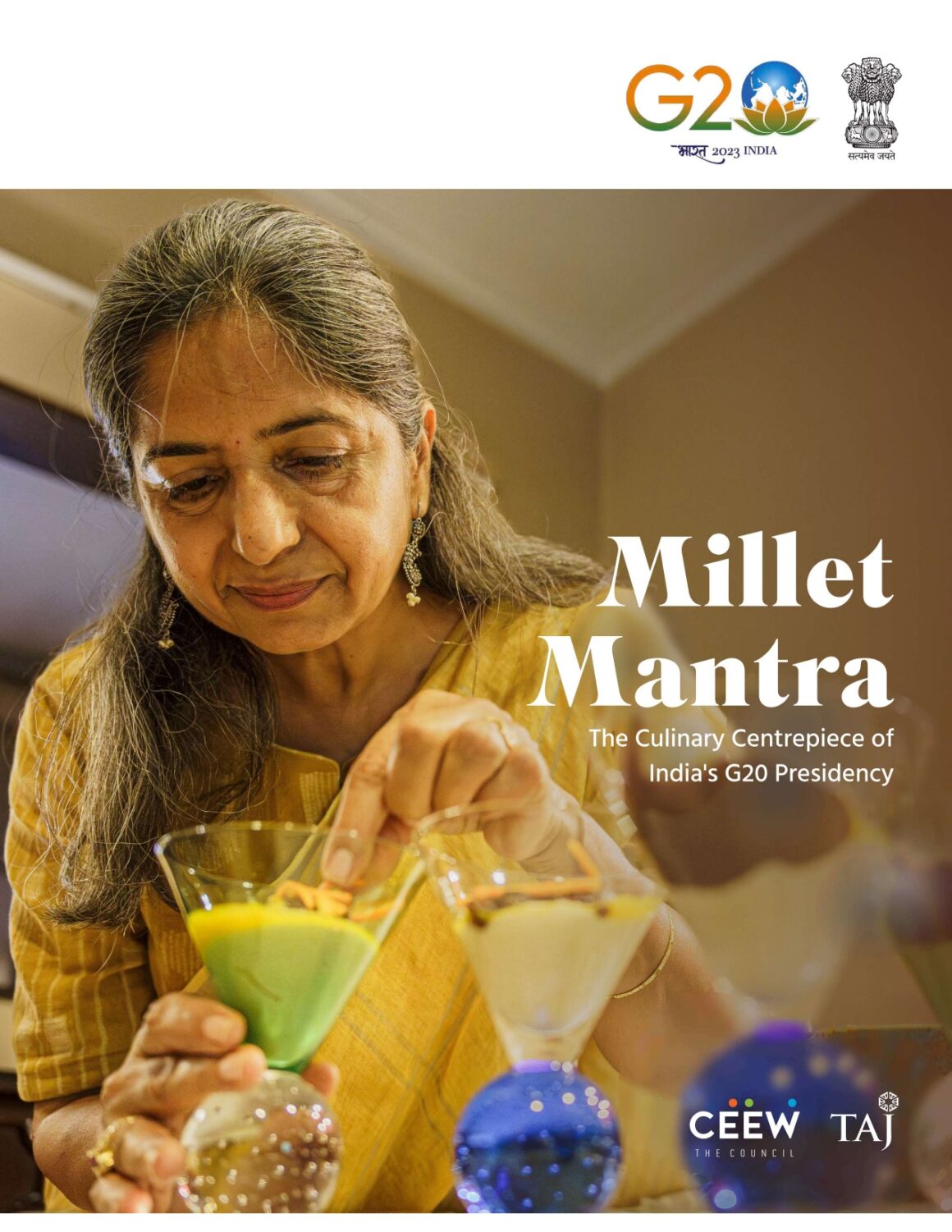
The 500-square-foot premises of the Krishna Self-Help Group (SHG) is bustling with activity in the morning hours. Ten uniformed employees, all women, are busy at work turning their stock of finger millet seeds into flour.
Ganga Singh, the founder-president, directs the operations of the processing facility and beams with pride as she tells us about the motivation behind their work: “Our SHG supports the noble vision of the Odisha Millets Mission. The flour processed by us is converted into finger millet (ragi) laddus (a type of sweet dumpling) that is distributed to children at the anganwadi (childcare centres) in Keonjhar.”
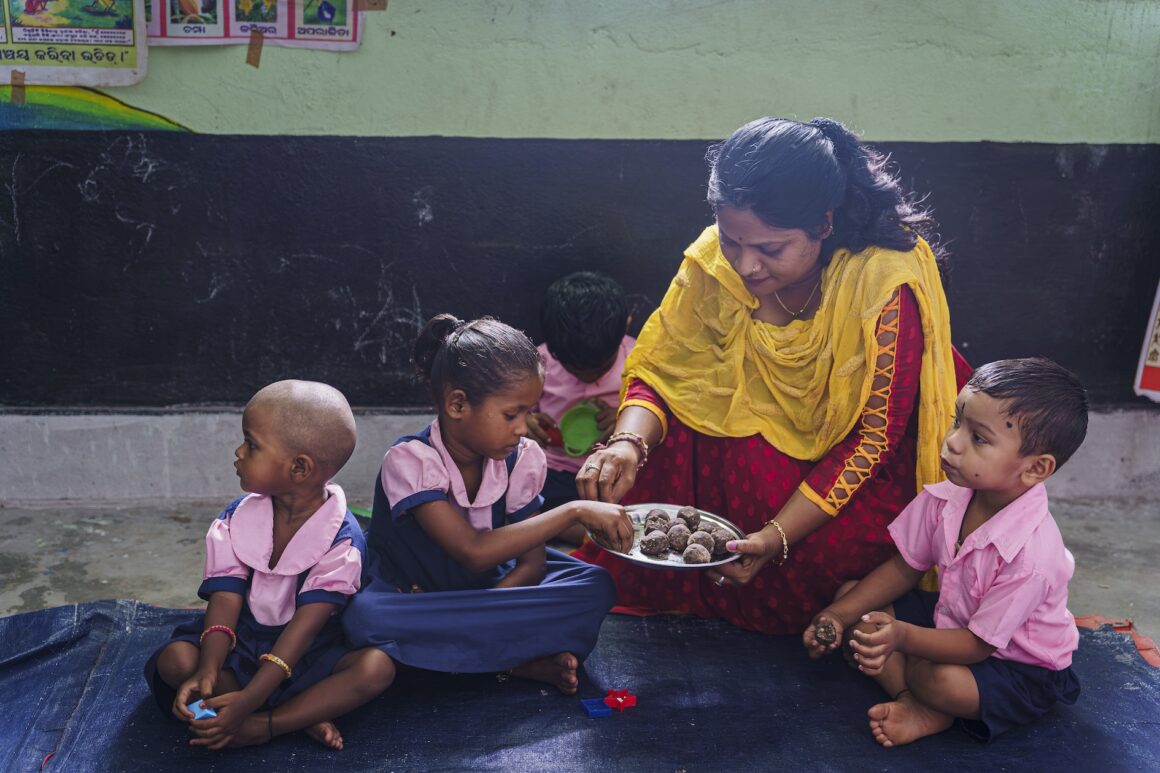
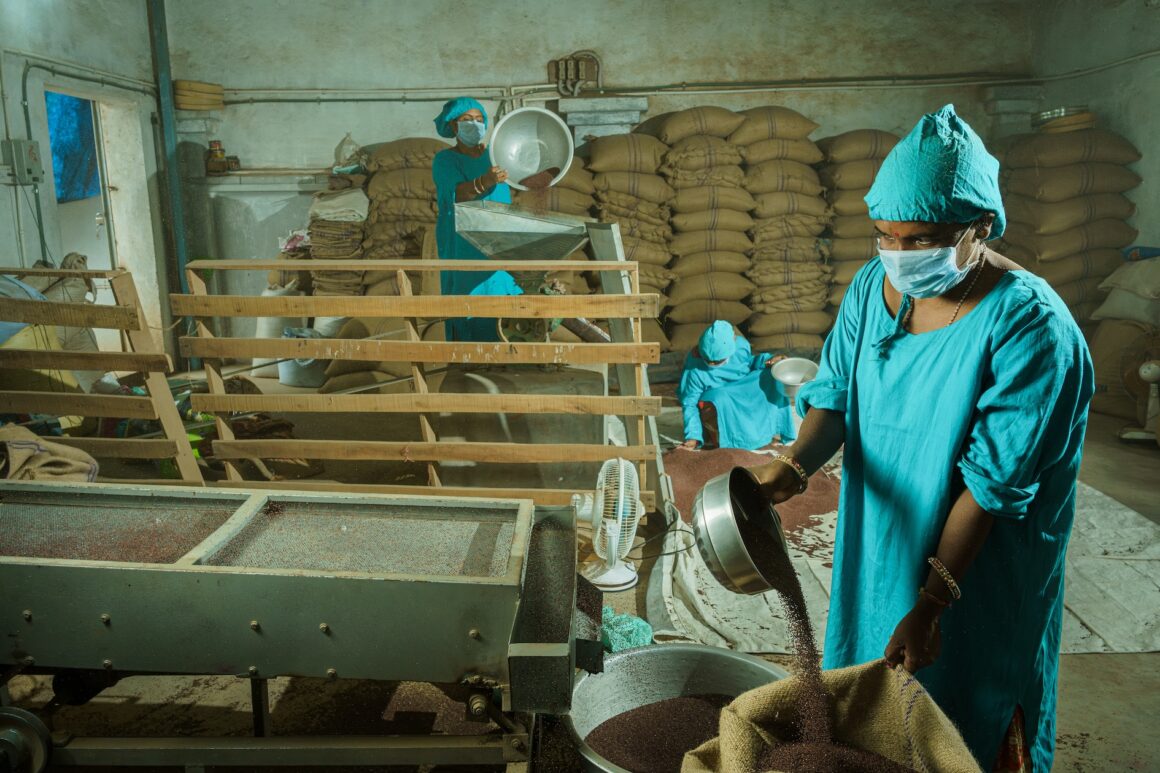
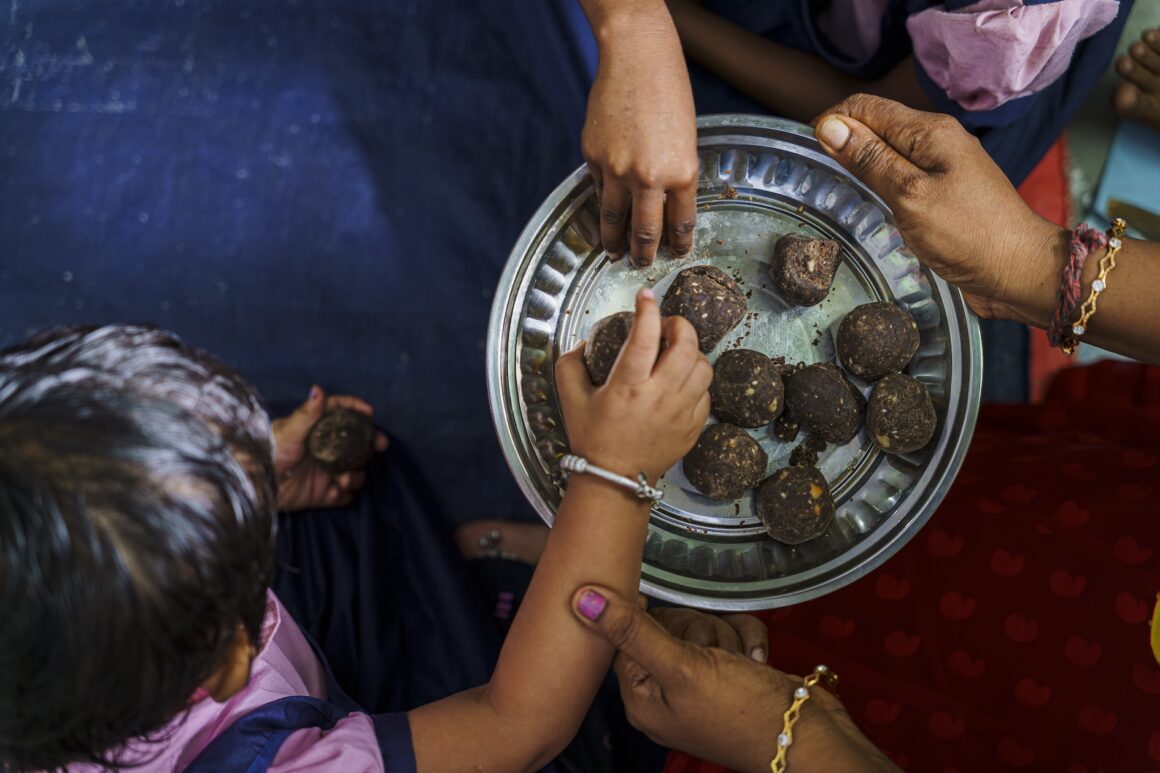
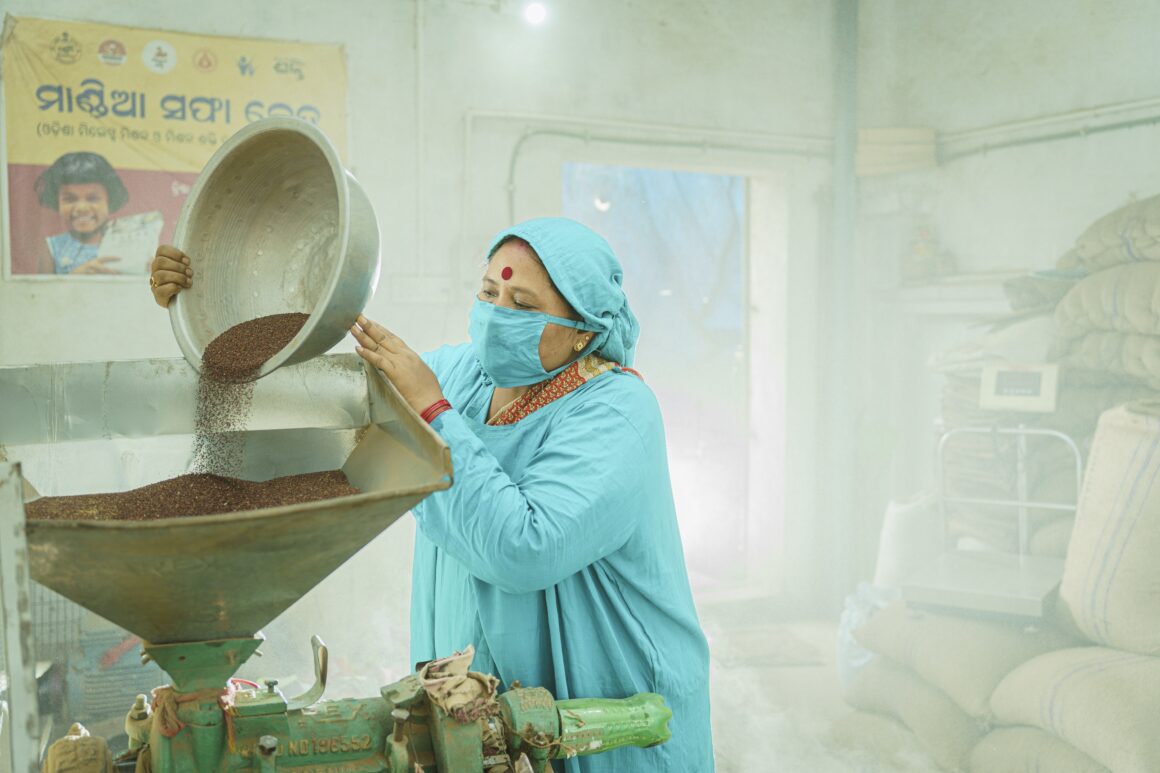
The millet value chain in Keonjhar, Odisha, of which Singh is an integral part, has fostered financial independence and social empowerment for the community. Singh and her fellow members are no longer anonymous; they are revered as the resilient women of the Krishna SHG.
Odisha’s story symbolises and inspires a broader trend unfolding across the country. Under the PM POSHAN scheme of the Government of India, millet-based foods and snacks are now being served as part of midday meals in schools in Andhra Pradesh, Chhattisgarh, Jharkhand, Karnataka, Odisha, Uttar Pradesh, and Telangana, which is transforming the lives of thousands of children. Inspired by the many success stories of SHGs like Krishna, the government recently allocated INR 25 crore (USD 3 million) as seed money for 7,500 SHGs to start their own enterprises.
Singh and her fellow members are no longer anonymous; they are revered as the resilient women of the Krishna SHG.
“It looks great now, but things weren’t always easy,” says Ganga Singh as she narrates the story of her SHG. “We started the SHG as a collective of like-minded women with a contribution of just INR 25 (USD 0.3) from each member and the aim to uplift our lives. Today, we each earn INR 20,000 (USD 240) every month.”
From its modest beginnings, Krishna SHG has grown into a formidable local enterprise clocking a monthly turnover of Rs 2 lakh (USD 2,400). It not only has a millet processing facility but also a café in the local district collector’s office in Keonjhar that serves mouth-watering millet-based dishes throughout the day.
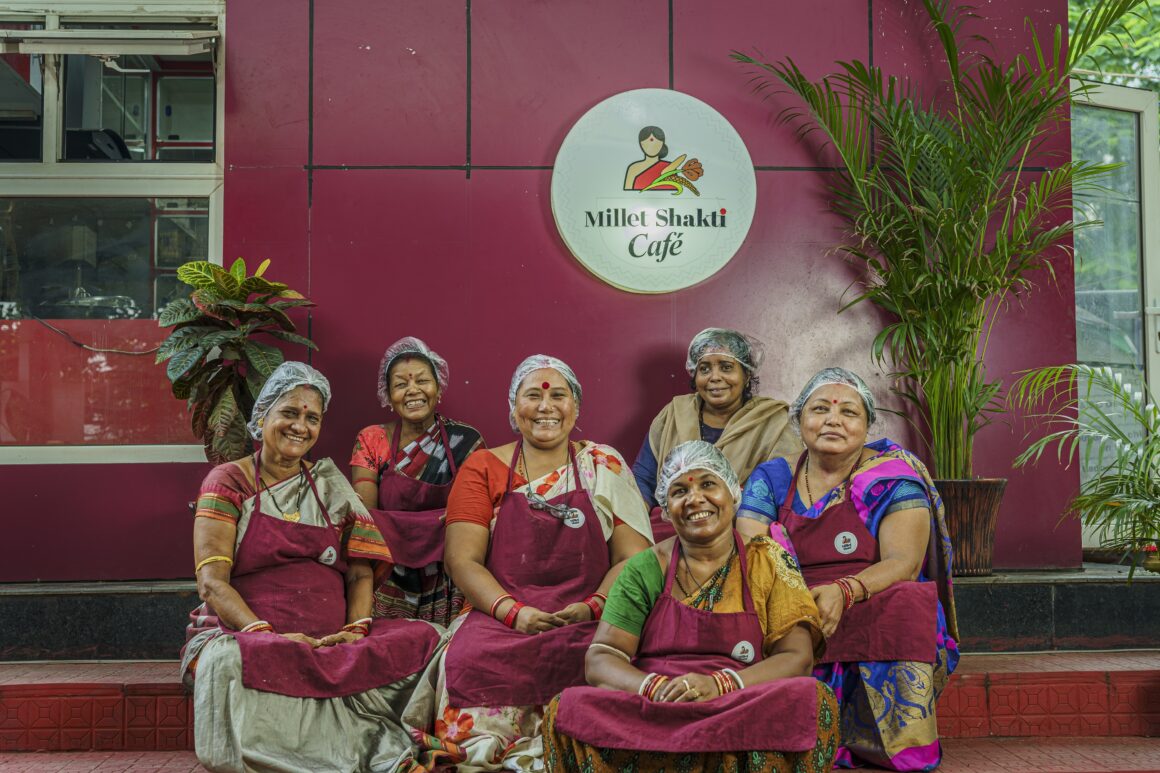
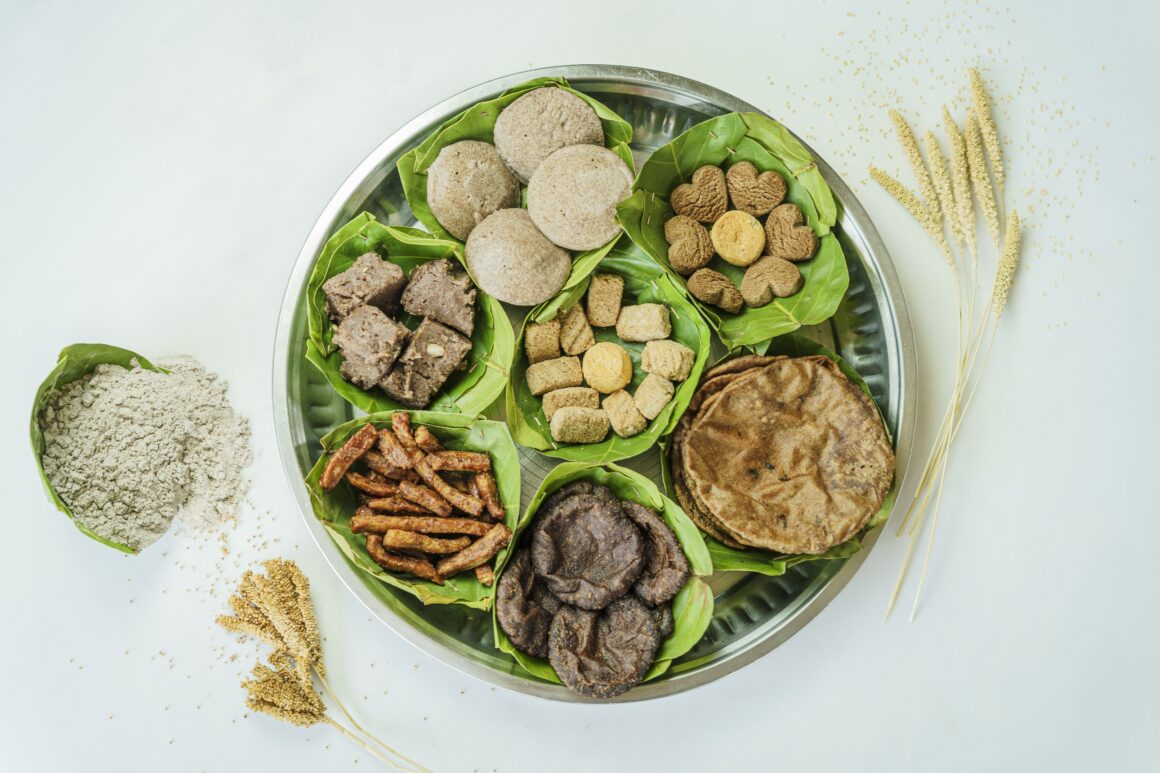
From its modest beginnings, Krishna SHG has grown into a formidable local enterprise clocking a monthly turnover of Rs 2 lakh (USD 2,400).
Ganga Singh’s SHG is one of 1,500 SHGs in the state driving the Odisha Millet Mission. India has 1.2 crore SHGs, spanning agriculture, allied industries and service sectors. These groups—88 per cent of which are all-women-member organisations—are juggernauts of empowerment and impact, creating local economies and contributing to their communities’ overall development and well-being.
Stories like Ganga Singh’s are a testament to the resourcefulness of India’s women entrepreneurs. Their contribution to the national economy and social fabric embodies the qualities of the humble grain they turn into hearty, nourishing flour.
This is an excerpt from Millet Mantra published in 2024 (CEEW).
Find the recipe for the ragi laddu supplied to Keonjhar’s Anganwadi centres here.
Saahil Parekh is Programme Lead for The Council’s Sustainable Food Systems team, where he leads multiple initiatives like identifying governance gaps, improving climate smart agricultural policies for two states, identifying pathways to scale regenerative agriculture, and improving diets for all.
Karan Shinghal is a Programme Associate with The Council’s Sustainable Food Systems team, and leads its work on identifying pathways to scale agroforestry in India. He also supports the team’s work on healthy and sustainable diets for all.
Nandini Agarwal was previously a Programme Associate with The Council’s Sustainable Food Systems team and is currently a German Chancellor Fellow researching the role of Food Policy Councils in promoting sustainable food systems.
Shuva Raha is the Head of New Initiatives at The Council and leads several international energy-development-sustainability projects.
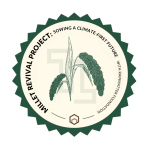
This article is part of the Millet Revival Project, The Locavore’s modest attempt to demystify cooking with millets, and learn the impact that it has on our ecology. This initiative, in association with Rainmatter Foundation, aims to facilitate the gradual incorporation of millets into our diets, as well as create a space for meaningful conversation and engagement so that we can tap into the resilience of millets while also rediscovering its taste.

Rainmatter Foundation is a non-profit organisation that supports organisations and projects for climate action, a healthier environment, and livelihoods associated with them. The foundation and The Locavore have co-created this Millet Revival Project for a millet-climate outreach campaign for urban consumers. To learn more about the foundation and the other organisations they support, click here.
